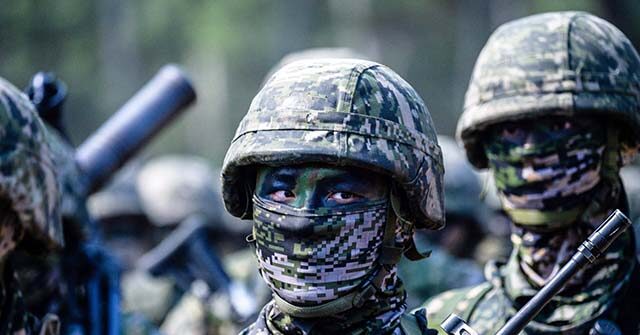South Korean President Yoon Suk-yeol’s recent remarks underscore the escalating concern regarding North Korea’s growing involvement in the Russian invasion of Ukraine. In a phone conversation with Ukrainian President Volodymyr Zelensky, Yoon emphasized the need for “countermeasures” and called for heightened vigilance from his Cabinet in light of North Korea’s potential military cooperation with Russia. Both leaders agreed to enhance their diplomatic engagement and collaboration to mitigate North Korea’s influence in the ongoing conflict. Yoon’s administration aims to coordinate efforts on various levels to effectively respond to this emerging threat, highlighting the urgency of the situation as North Korea’s involvement could significantly impact regional and global stability.
Yoon, who has adopted a conservative stance in his presidency, has been vocal throughout the year about the implications of the burgeoning ties between North Korea and Russia. He warned that North Korea’s actions represent a global threat that extends beyond East Asia. The president articulated that the military collaboration between the two nations poses serious challenges to peace and security, both on the Korean peninsula and in Europe. Yoon urged Russia to reevaluate its alliances by considering which partnership would be more beneficial for its national interests: that with South Korea or North Korea. He has persistently framed North Korea as a menace to international stability and has sought to rally global consensus on addressing the issue.
Recent intelligence reports indicate that North Korea has deployed approximately 3,000 soldiers to Russia, possibly to receive military training and to participate in combat operations in Ukraine. The South Korean National Intelligence Service (NIS) also suggested that North Korean generals might soon be sent to battlefield areas in Ukraine, further complicating the conflict dynamics. Yoon declared such military cooperation between the two nations a “significant security threat” to the international community. He has urged his government to remain vigilant and develop comprehensive risk management strategies, particularly ensuring that responses do not adversely affect the South Korean economy amidst these heightened tensions.
During the conversation with President Zelensky, Yoon characterized North Korea’s activities in Europe as “unprecedented and dangerous,” referring to the North Korean troops in Russia as “special forces.” Zelensky reaffirmed the necessity for closer cooperation and voiced expectations that the number of North Korean soldiers involved could rise to 12,000 in the near future. The Ukrainian president described the situation as one where the war is rapidly internationalizing, indicating that the crisis extends well beyond the two belligerent nations. Both leaders voiced adamant condemnation of the military cooperation between North Korea and Russia, with a commitment to pursue strategic consultations for a joint response.
The implications of North Korea’s military involvement in Ukraine are particularly concerning given its status as a nuclear-armed state. Unlike other reports suggesting the exploitation of impoverished individuals from nations like India and Cuba as conscripts on the frontlines, evidence indicates that North Korea is deploying trained soldiers, knowingly escalating its military footprint in the region. This raises alarms not only about the effectiveness of the defense in Ukraine but also the potential risk of a broader conflict involving nuclear capabilities, heightening the stakes for international security. Coinciding with these developments is the Ukrainian international legion, composed of individual fighters from various nations, contrasting sharply with North Korea’s organized military contributions.
In addition to addressing these pressing matters, Yoon’s office issued a summary of the phone call with Zelensky, emphasizing their mutual denunciation of the illegal military ties between North Korea and Russia. As North Korea’s Foreign Minister Choe Son-hui travels to Russia to discuss potential logistics for a Kim-Putin meeting, expectations rise regarding the strategic implications of these collaborations and their potential responses to troop deployments. The geopolitical landscape continues to evolve with North Korea’s actions playing a critical role in shaping regional dynamics, necessitating decisive international responses to counteract the risks posed by such alliances. The situation remains fluid, with ongoing dialogue and strategic planning becoming imperative as the conflict in Ukraine endures and complicates further interactions on a global scale.

